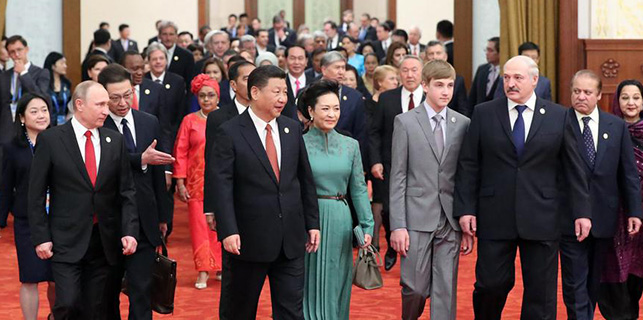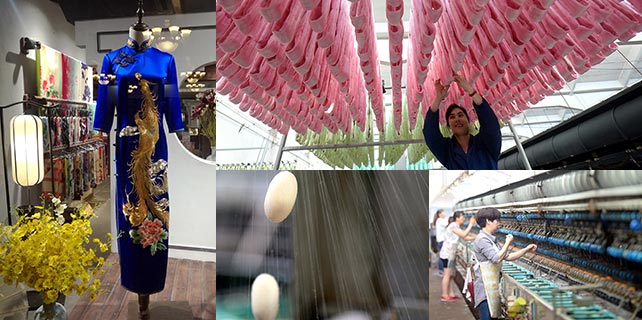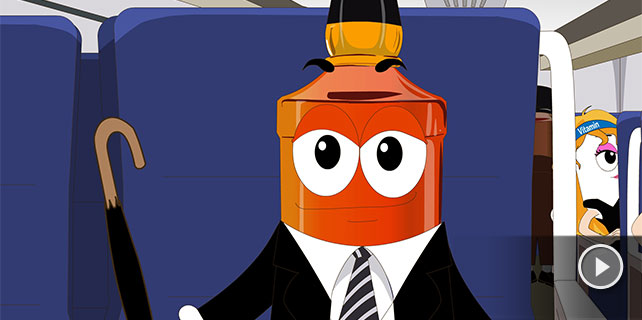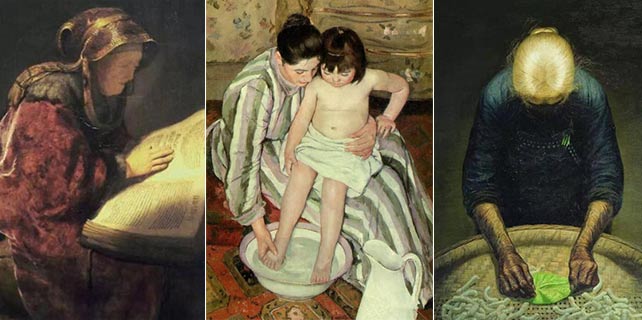Innovative porcelain on show for Belt and Road guests
At the roundtable meeting of the Belt and Road Forum for International Cooperation in Beijing is a line of exquisite china produced by a Shenzhen-based ceramics company, representing a culture industry that integrates modern technology with China's traditional culture, art and skills.
Stechcol Ceramic Crafts Development (Shenzhen) Co also presented this set — coffee cup, teapot, sugar bowls and plates — at a Shenzhen trade fair that ended May 15.
"Our design inspiration comes from artistic decoration pattern of the Buddhist caves near Dunhuang, a Gobi Desert oasis on the ancient Silk Road that once linked China and the West", said Chim Puiming, general technologist of the company.
He said these patterns are inspired by the original Dunhuang art.
The entrepreneur said 40 percent of the company's profit is put into innovation and research.
The company's technology acquired a national invention patent in 2014 and its collection of high-end china, all designed and manufactured in China, has been exported to more than 30 countries and regions, such as Russia, Kazakhstan and Greece, with an annual revenue of tens of millions of yuan.
Many traditional arts-and-crafts companies are developing new techniques while inheriting and spreading traditional skills, culture and art. Yu Liansheng, deputy secretary-general of the Shenzhen's association of arts and crafts, said 85 percent of art works recently on show were made with innovative techniques.
Another Shenzhen company, Boyaohengxin, created a new paperlike ceramic material just 1 mm thick, which can be widely used in publishing, decoration and education. A porcelain painting of a pigeon it presented at the trade fair looks just like embroidery work.
The city's technology companies have also teamed up with museums to upgrade their exhibition ability.
Shenzhen Yuanwangyichang Technology Co developed a 3-D antique scanner that can draw a 3-D image of an antique, which can be used in display and repair work.
Meanwhile, he added, museums can display the dynamic 3-D image in a showcase with electronic display, which is also produced by his company. Visitors also can interact with the transparent showcase by zooming in and out for better views of images.
















